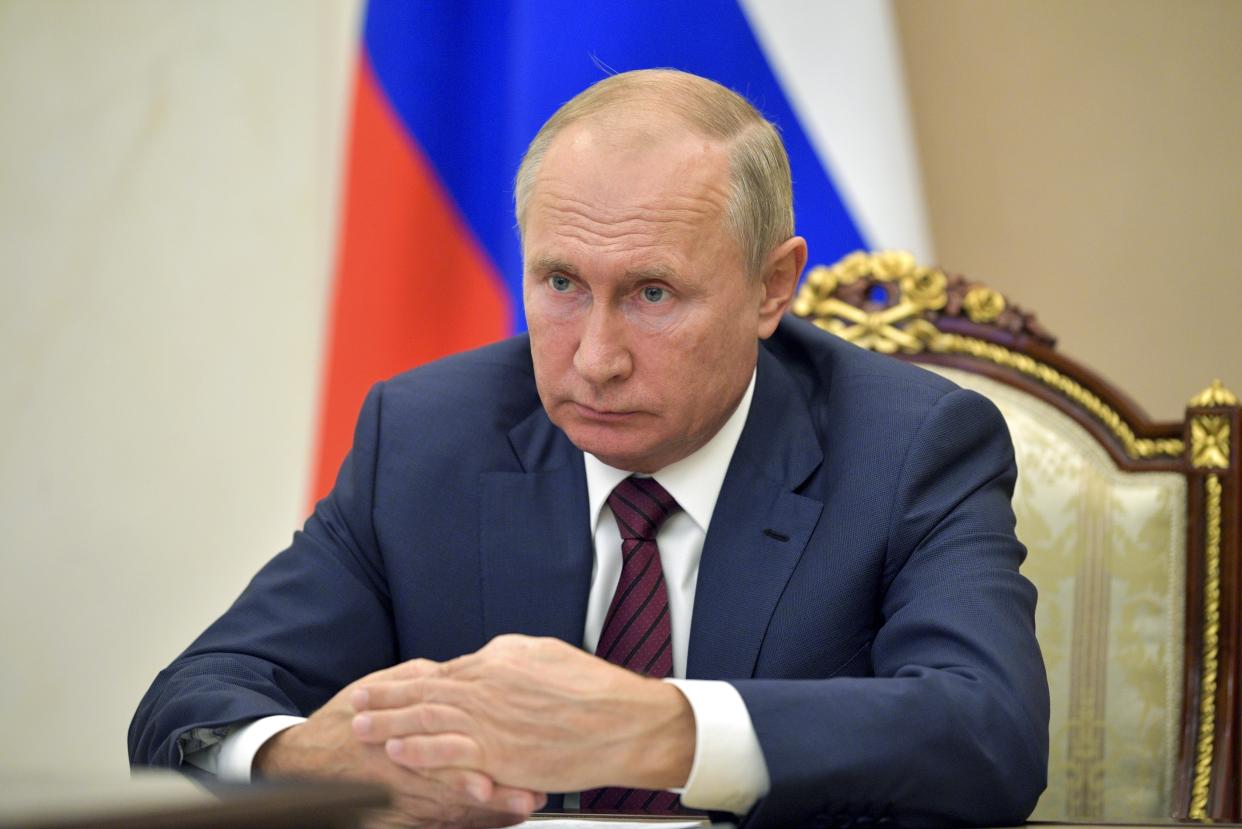‘Absolute nonsense’: Russia rejects claims Putin is unwell and planning to step down

Russian president Vladimir Putin attends a meeting via video conference in Moscow, Russia, in November
(AP)The Kremlin has denied reports suggesting Vladimir Putin may be poised to quit as Russia’s president early next year due to health problems.
The statement came afterThe Sun quoted Professor Valery Solovei, a Russian political pundit, who suggested earlier this week on a Moscow radio station that Mr Putin was under pressure from his entourage to step down.
Mr Solovei was also quoted as claiming that the Russian president might have symptoms of Parkinson's disease.
However, Kremlin spokesperson Dmitry Peskov responded to the reports on Friday by arguing they were “absolute nonsense”.
“Everything is fine with the president,” Mr Peskov said, adding that Mr Putin was not planning to step down in the near future.
Although the rumours about the president’s health are unsubstantiated, Mr Solovei’s quotes were picked up by a number of UK tabloids on Friday.
Rumours about Mr Putin’s health have been a long-standing feature of Russian politics but have never been verified.
The Russian president has been a dominant figure in the country, where life expectancy for men is just 68 years, according to data published by the World Bank in 2018, for more than two decades.
He recently turned 68 in October.
Mr Putin previously dismissed speculation about his health as “gossip” in 2015 after he was not seen in public for more than 10 days.
Although the president appeared to be in good health following his disappearance from public life, no explanation was given for why he cancelled a number of scheduled events.
The rumours followed a move by the Russian government on Thursday to extend ex-presidents’ immunity from criminal prosecution to any offences committed in their lifetimes, not merely while in office.
The bill, published on a government website, is one of several being introduced following constitutional reforms that, among other things, would allow Mr Putin to run again when his term ends in 2024.
Former presidents already have lifetime immunity for crimes committed in office under legislation adopted after Mr Putin first came to power.
The new bill would also make it harder to revoke ex-presidents' expanded immunity.
It would require the upper house of parliament to vote overwhelmingly to revoke immunity on the strength of accusations by the lower house that the president had committed treason or another serious crime.
Additional reporting by Reuters
Read more
Problems mount for Vladimir Putin

 Yahoo News
Yahoo News 
